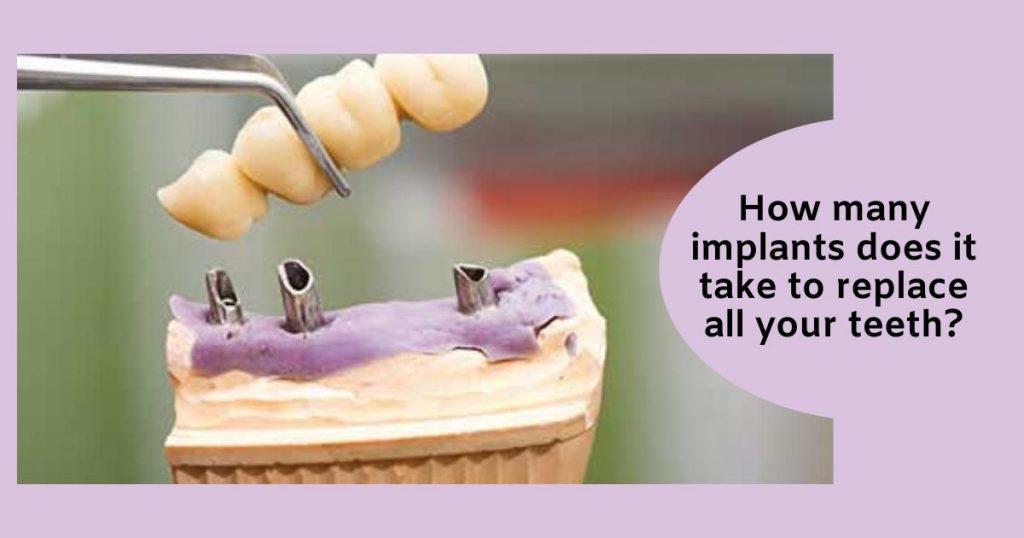In this day and age, only a few of us make it through life with all our 32 teeth. A study showed that on average most people lose at least 12 permanent teeth by their 50’s due to tooth decay, gum disease or injury. Losing one or several teeth can not only affect your smile but can also alter your bite and weaken your jaw bone.
With advancements in prosthetic dentistry and implant technology, we can replace all your teeth that are as functional and attractive as the teeth they have replaced. Here are some options to consider if you want to replace all your teeth.
Individual Implants with Crowns
Individual Implants that are fitted with individual dental crowns can be used to replace an entire set of teeth. By replacing each tooth with an individual implant you can make them function like real teeth. With this treatment, each implant is placed in a perfectly aligned manner to provide the most optimal bite. Most people don’t opt for this option since you would need all teeth to be replaced. And this is more expensive than other implant treatment options.
Implant-supported Bridges
Rather than replacing each tooth with a single dental implant, the dentist can place 6-8 implants on a dental arch which can support a series of dental bridges to replace all your teeth. Implant-supported bridges also provide good chewing forces similar to natural teeth.
All-on-4 Dental Implants
The All-on-4 Dental Implant system is an extremely good option if you want to replace all your teeth. With this treatment option, you can restore an entire dental arch with just 4 implants. These implants are specially placed in an angled position to take advantage of the strongest available bone in your jaw. Another advantage of this treatment is that you can get a set of functional teeth very soon.
Implant-supported Dentures
Your dentist can place a series of implants adjacently across your dental arch over which you can place a custom made denture that snaps into place. Unlike conventional dentures, implant-supported dentures do not slip. These dentures can be removed off from the implants for cleaning and other care.
Denture Stabilization
If you are already using a set of dentures, you can retrofit your existing dentures with attachments that can snap onto implants. This process can prevent your existing dentures to move around while chewing food, or while speaking etc.
